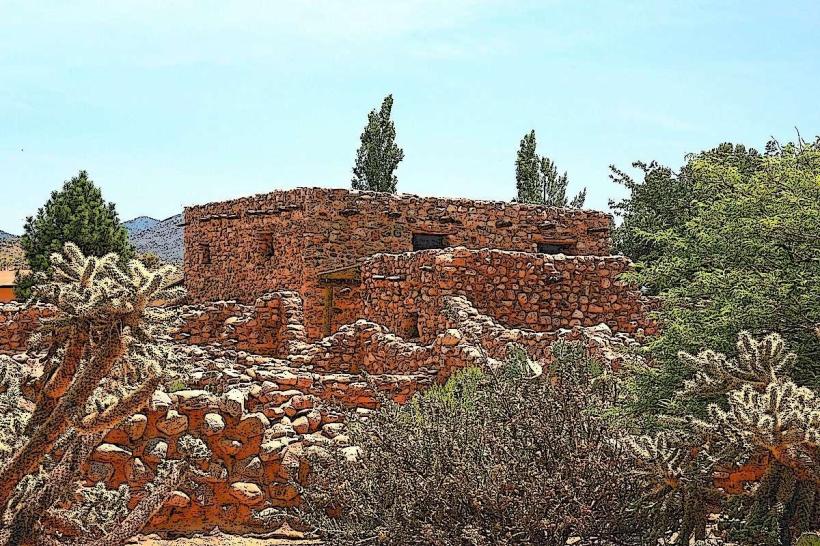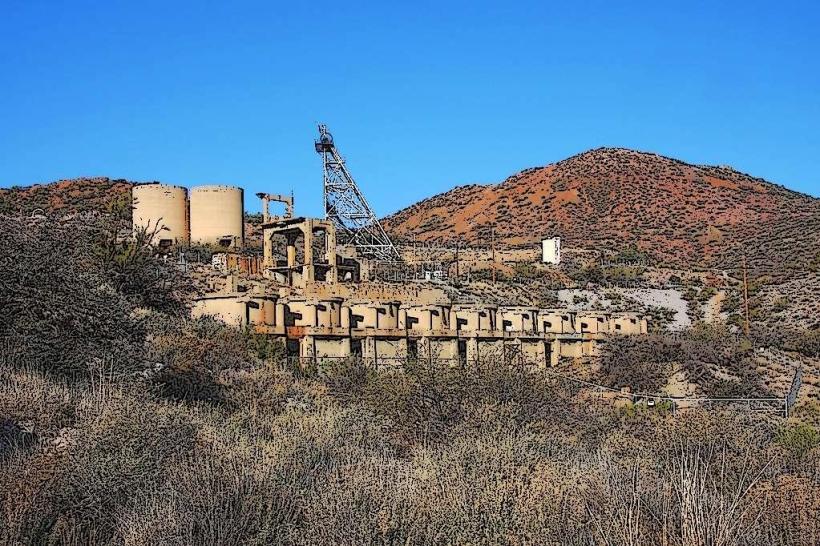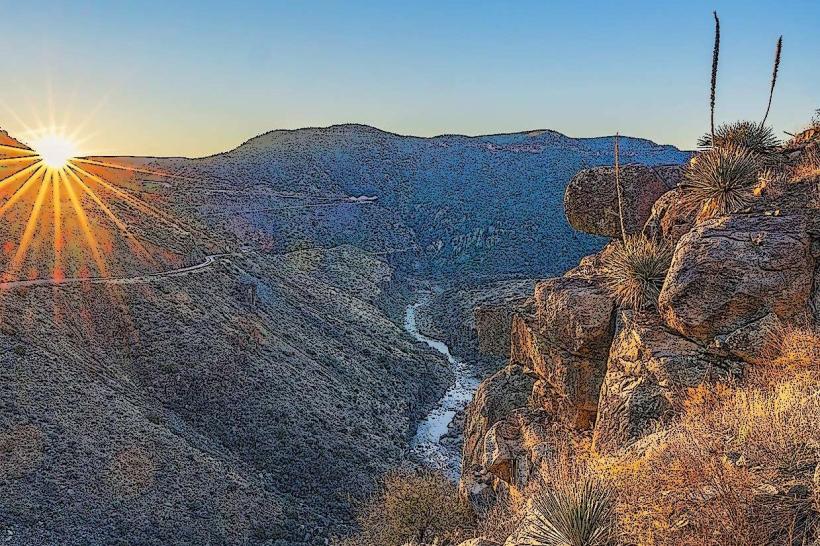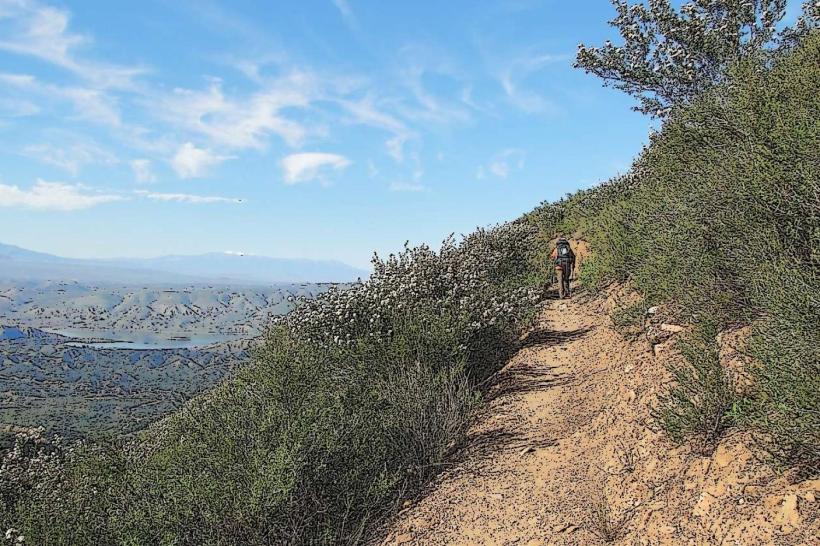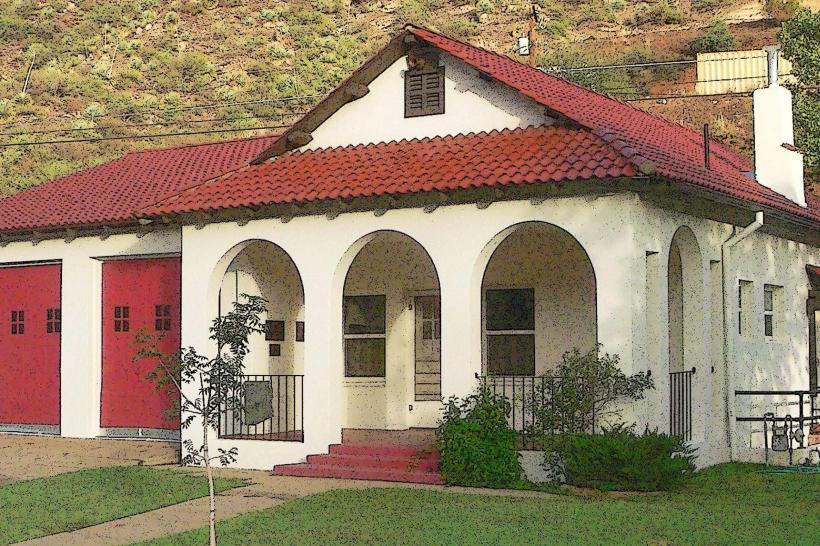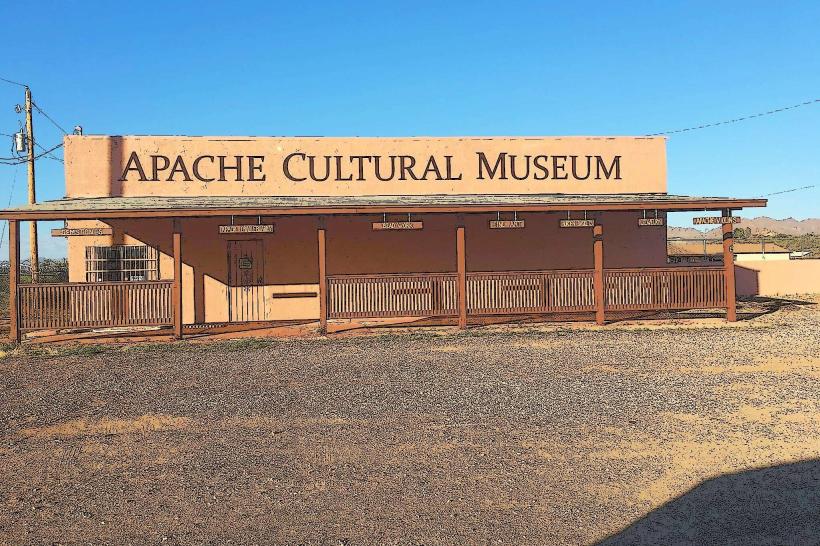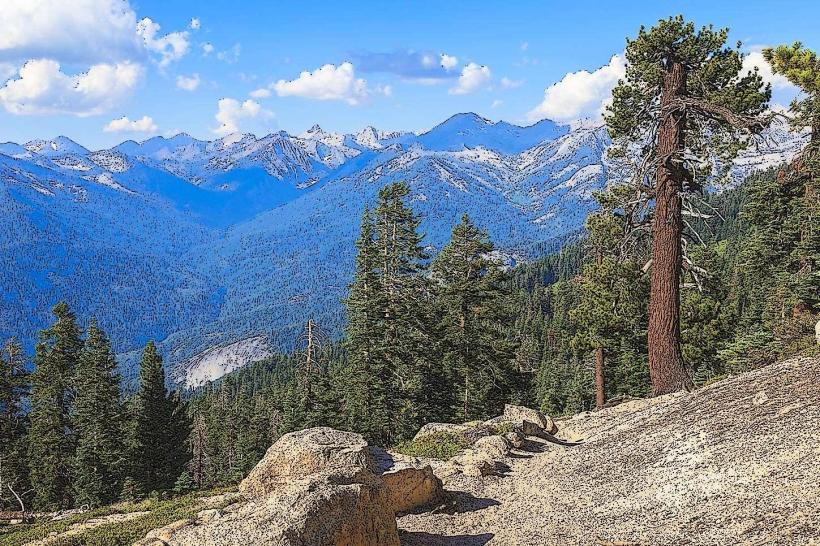Information
Landmark: Tonto National ForestCity: Globe
Country: USA Arizona
Continent: North America
Tonto National Forest, Globe, USA Arizona, North America
Tonto National Forest is the largest national forest in Arizona and one of the largest in the United States, spanning roughly 2.9 million acres of diverse and spectacular landscapes. It stretches across multiple counties, including Gila, Maricopa, Yavapai, and Pinal, and is situated just northeast of the Phoenix metropolitan area. The forest's terrain varies dramatically in elevation-from about 1,300 feet in the Sonoran Desert areas to nearly 7,900 feet along the Mogollon Rim-creating an extraordinary range of ecosystems that support a rich variety of plant and animal life.
Geography and Ecosystems
The lower elevations of Tonto National Forest encompass the classic Sonoran Desert environment, known for iconic saguaro cacti, creosote bushes, palo verde trees, and desert wildflowers. As the elevation increases, the landscape transitions into chaparral and grasslands before giving way to woodlands filled with juniper, manzanita, and pinyon pine. At the highest elevations, near the Mogollon Rim-a massive escarpment marking the southern edge of the Colorado Plateau-dense forests of ponderosa pine, Douglas fir, and mixed conifers dominate. This gradient of habitats supports diverse wildlife, including species such as mule deer, javelina, mountain lions, bald eagles, and numerous bird species, making it a haven for nature enthusiasts and wildlife watchers.
Recreation Opportunities
Tonto National Forest offers an extensive array of outdoor activities. It boasts over 900 miles of multi-use trails suitable for hiking, mountain biking, and horseback riding. One of the most famous trails is the Highline National Recreation Trail, a 54.7-mile route that runs along the base of the Mogollon Rim, offering breathtaking vistas, geological formations, and a connection to the region’s cultural history.
The forest is also intersected by the scenic Apache Trail (Arizona State Route 88), a historic and winding roadway that provides access to many recreational sites, lakes, and campgrounds. Popular lakes within the forest, such as Roosevelt Lake, Apache Lake, Canyon Lake, and Saguaro Lake, offer excellent opportunities for boating, fishing, kayaking, and swimming. These reservoirs, created by damming the Salt and Verde Rivers, are surrounded by rugged canyon walls and desert scenery, making them visually stunning destinations for both relaxation and water sports.
Camping is a major attraction, with a variety of options ranging from developed campgrounds equipped with amenities like picnic tables, restrooms, and boat ramps, to dispersed camping areas that allow for a more primitive and secluded wilderness experience. Seasonal restrictions and fire regulations are strictly enforced to preserve the natural environment and ensure visitor safety, especially given Arizona’s dry climate and wildfire risk.
Cultural and Historical Significance
Tonto National Forest is not only a natural treasure but also a place of rich cultural heritage. The region was historically inhabited by the Salado culture and other Native American peoples, whose presence is evidenced by ancient cliff dwellings, petroglyphs, and archaeological sites scattered throughout the forest. The Tonto National Monument preserves some of these cliff dwellings and provides interpretive trails and educational programs that offer insight into the lives and survival strategies of these early desert dwellers.
In addition to Native American history, the forest contains remnants of Arizona’s mining past, old ranching homesteads, and early settler trails. These historical layers add depth to the visitor experience, blending natural beauty with cultural stories.
Conservation and Safety
Due to the forest’s dry climate, wildfire risk is a constant concern. The forest is subject to seasonal fire restrictions, which may include bans on campfires, charcoal grills, fireworks, and shooting. Visitors are urged to stay informed of current conditions and follow all safety guidelines to prevent accidental fires. The U.S. Forest Service manages the forest to balance public use with habitat protection, ongoing restoration projects, and sustainable resource management.
Visitor Resources and Facilities
Visitors to Tonto National Forest can find numerous ranger stations, visitor centers, and informational kiosks throughout the forest to assist with trip planning, permit acquisition, and educational programs. The forest is accessible via several highways and roads, including major routes from Phoenix and Flagstaff, making it a convenient destination for day trips or extended outdoor adventures.
Detailed maps, trail guides, and updated conditions can be obtained from the U.S. Forest Service website and local ranger offices. Seasonal changes affect accessibility in certain areas, particularly during monsoon rains or winter snows at higher elevations, so checking conditions beforehand is recommended.
Summary
Tonto National Forest stands as a vast and varied landscape offering a microcosm of Arizona’s natural and cultural heritage. From the rugged Sonoran Desert through pine-covered highlands to sparkling lakes and ancient archaeological sites, the forest invites visitors to explore its trails, waterways, and history. Whether seeking solitude in the wilderness, family-friendly recreation, or a deeper understanding of Arizona’s past, Tonto National Forest provides a rich and rewarding experience shaped by its remarkable diversity and enduring wilderness character.

